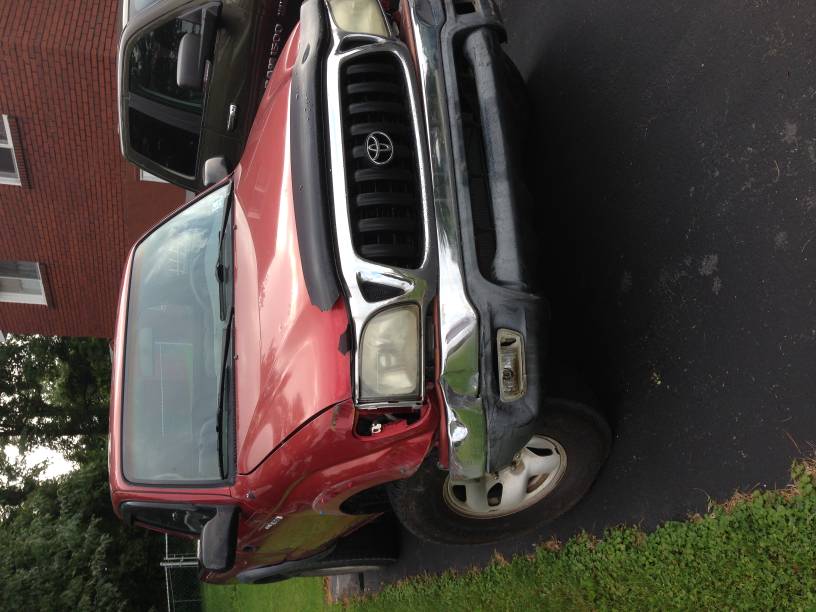Hello
I'm the proud owner of a 2002 2.7l Tacoma. Single cab manual transmission 4wd. I've had it since 2004 I bought it certified pre-owned with 28k miles and kept diligent care of it while in the service and back home. In 2012 I bought a new truck and gifted the Tacoma to my dad. He fell way behind on upkeep being on disability and got an accident with it causing some decent cosmetic damage and the lack of upkeep led to it being mostly parked and not inspected since 2014.
After my father passed I got the Tacoma back and have finally decided to make her road Worthy again bc it really was my favorite vehicle. The cosmetics I can deal with but want some real world ideas on drivetrain maintenance I should preform while it's in pieces. It ran very rough and stalled out a few times on the way home with it so first thing is a tune up of fuel filter/plugs/oil change/PVC valve . Any other suggestions. I flushed all the tranny/diffs/transfer case fluids at 95k mi .So are they still good or not. I've seen videos or cleaning throttle body and flushing radiator etc. It has sat for two years in my yard while I got caught up on household projects.
Thanks for any direction.
I'm the proud owner of a 2002 2.7l Tacoma. Single cab manual transmission 4wd. I've had it since 2004 I bought it certified pre-owned with 28k miles and kept diligent care of it while in the service and back home. In 2012 I bought a new truck and gifted the Tacoma to my dad. He fell way behind on upkeep being on disability and got an accident with it causing some decent cosmetic damage and the lack of upkeep led to it being mostly parked and not inspected since 2014.
After my father passed I got the Tacoma back and have finally decided to make her road Worthy again bc it really was my favorite vehicle. The cosmetics I can deal with but want some real world ideas on drivetrain maintenance I should preform while it's in pieces. It ran very rough and stalled out a few times on the way home with it so first thing is a tune up of fuel filter/plugs/oil change/PVC valve . Any other suggestions. I flushed all the tranny/diffs/transfer case fluids at 95k mi .So are they still good or not. I've seen videos or cleaning throttle body and flushing radiator etc. It has sat for two years in my yard while I got caught up on household projects.
Thanks for any direction.

